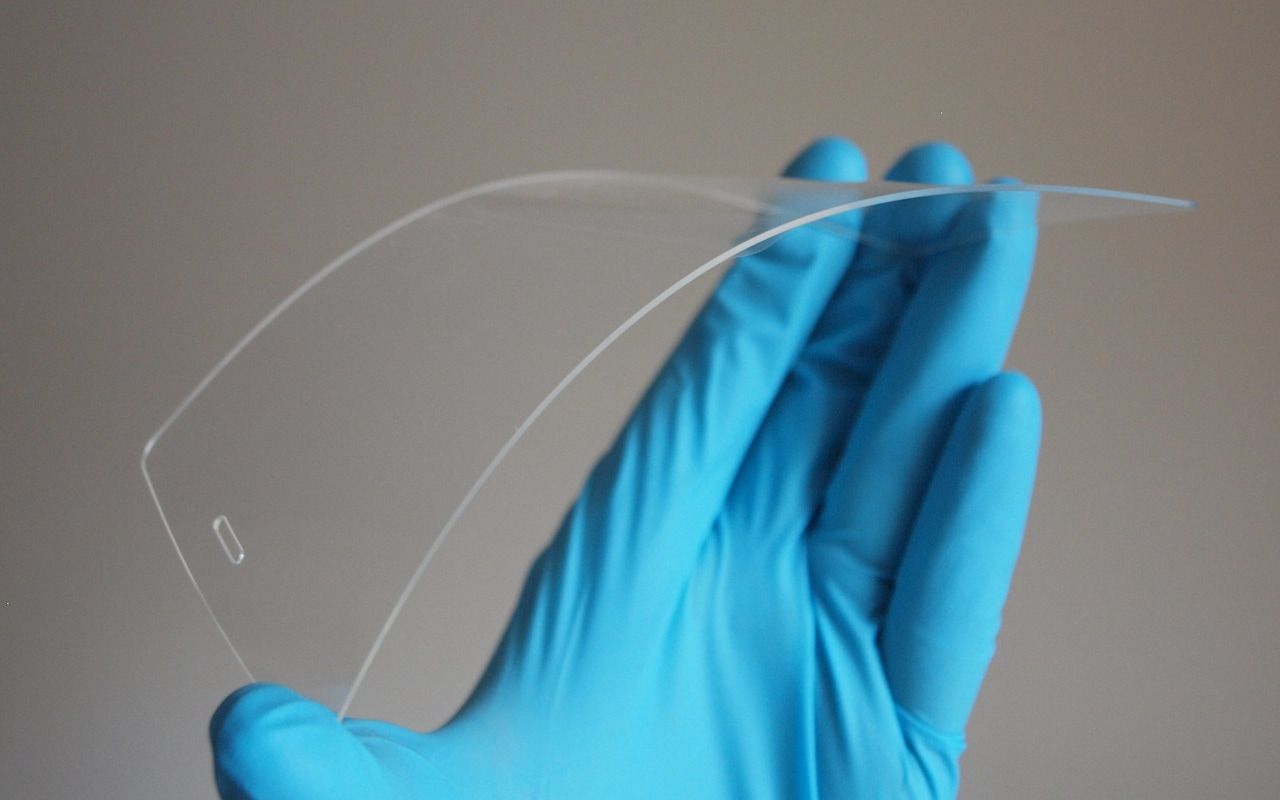
Smashed smartphone screens may soon be a thing of the past after scientists developed a cheap and ultra-strong touchscreen display using the "miracle material" graphene.
Physicists from the University of Sussex in England found a solution to brittle smartphone screens by combining silver nanowires with graphene—a one-atom-thick material that is 200 times stronger than steel, more conductive than copper and as flexible as rubber.
The hybrid material, described in a paper published in the scientific journal Langmuir, is not only cheaper and more resilient than existing technologies, but also more responsive and more environmentally friendly.
"While silver nanowires have been used in touchscreens before, no one has tried to combine them with graphene," said Alan Dalton, a professor from the University of Sussex who led the discovery.
"This breakthrough technique is inherently scalable. It would be relatively simple to combine silver nanowires and graphene in this way on a large scale using spraying machines and patterned rollers. This means that brittle mobile phone screens might soon be a thing of the past."

Smartphone screens are currently made using indium—a rare metal that is costly and environmentally damaging to extract. Its brittle properties are what makes touchscreen displays so susceptible to cracking and smashing.
"Since graphene is produced from natural graphite—which is relatively abundant—the cost for making a touch sensor drops dramatically," said Matthew Large, a researcher on the project.
Related: The cracked iPhone screen turns 10.
The graphene-based material could conceivably be used in future iPhones and other smartphones prone to screen breakages, while also paving the way for a new generation of flexible electronic devices.
Major smartphone manufacturers, including market leading Samsung, have hailed the potential of graphene to revolutionize screen technology. The smartphone giant is currently working on a way to commercialize the production of graphene through the Samsung Advanced Institute of Technology.

This interest in graphene stems from the material's unique properties. Since it was first created in a laboratory by researchers at the University of Manchester in 2004, scientists have described graphene as a "miracle material" for the vast range of potential applications.
Beyond unbreakable smartphone screens and electronics, applications include indoor solar cells, saltwater sieves, reinforced silk, and "tattoos" capable of testing and treating diabetes.
"For many years, people have been looking for graphene applications that will make it into mainstream use," professor Ravi Silva, a graphene researcher at the University of Surrey unconnected to the latest research, told Newsweek in an interview last year. "We are finally now getting to a point where these applications are going to happen."
Uncommon Knowledge
Newsweek is committed to challenging conventional wisdom and finding connections in the search for common ground.
Newsweek is committed to challenging conventional wisdom and finding connections in the search for common ground.
About the writer
Anthony Cuthbertson is a staff writer at Newsweek, based in London.
Anthony's awards include Digital Writer of the Year (Online ... Read more
To read how Newsweek uses AI as a newsroom tool, Click here.






